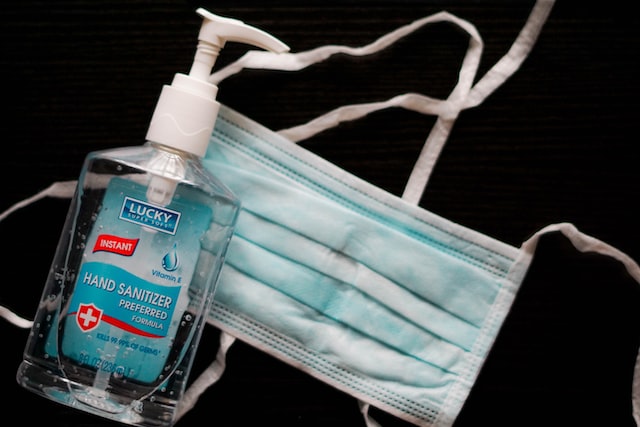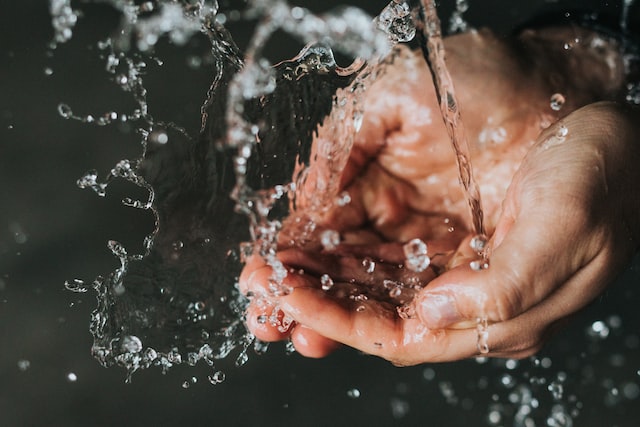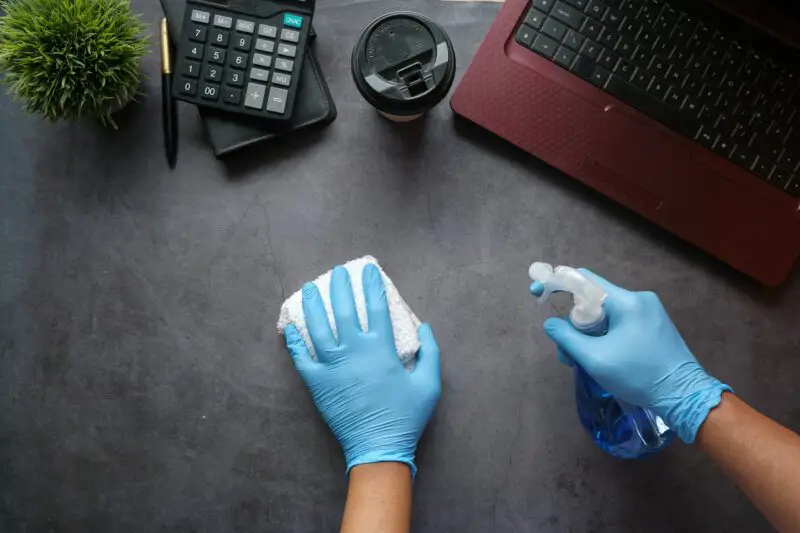Hygiene refers to the practices and measures taken to maintain health and prevent the spread of disease. Cleanliness refers to the act of keeping something free of dirt, stains, or impurities, and is often related to physical appearance and aesthetic standards.
What is hygiene?
(Photo by Tai’s Captures on Unsplash )

Hygiene refers to the practices and measures taken to maintain health and prevent the spread of disease. It involves maintaining cleanliness, as well as following healthy habits and routines in order to prevent the spread of illness and disease. Some examples of hygiene practices include regular hand washing, covering the mouth when coughing or sneezing, and maintaining clean and sanitary living conditions. Hygiene is an important aspect of public health and is essential for preventing the spread of illness and disease, both in individual communities and globally.
Hygiene is often used to mean “cleanliness,” but they are not the same thing.
What is cleanliness?

Cleanliness is the removal of dirt and grime
Cleanliness refers to the act of keeping something free of dirt, stains, or impurities, and is often related to physical appearance and aesthetic standards. It involves maintaining a clean and tidy environment, as well as keeping oneself and one’s possessions free of dirt and grime. Cleanliness can involve a variety of activities, including washing one’s hands and body, cleaning one’s home and personal possessions, and wearing clean clothing. Cleanliness is important for both personal health and hygiene, as well as for social and cultural reasons. A clean and orderly appearance can convey a sense of pride, responsibility, and respect for oneself and others.
Hygiene and cleanliness are two different things
Hygiene and cleanliness are two distinct concepts, although they are often related and overlap in many ways.
Hygiene refers to the practices and measures taken to maintain health and prevent the spread of disease. It involves maintaining cleanliness, as well as following healthy habits and routines in order to prevent the spread of illness and disease. For example, regular hand washing, covering the mouth when coughing or sneezing, and maintaining clean and sanitary living conditions are all considered important aspects of hygiene. The focus of hygiene is primarily on maintaining good health and preventing the spread of illness and disease.
Cleanliness, on the other hand, refers to the act of keeping something free of dirt, stains, or impurities. This can involve a variety of activities, including washing one’s hands and body, cleaning one’s home and personal possessions, and wearing clean clothing. The focus of cleanliness is primarily on physical appearance and aesthetic standards, although there is also an important connection to personal health and hygiene. A clean and orderly appearance can convey a sense of pride, responsibility, and respect for oneself and others.
In summary, hygiene and cleanliness are two related, but distinct, concepts. Hygiene focuses on maintaining good health and preventing the spread of illness and disease, while cleanliness focuses on maintaining a clean and tidy physical appearance. Both are important for personal health and well-being, as well as for social and cultural reasons.
Both are important for maintaining good health
Practicing good hygiene habits
Good hygiene habits are essential for maintaining good health and preventing the spread of illness and disease. Here are some common ways to practice good hygiene habits:
- Wash your hands regularly and thoroughly, especially after using the bathroom, blowing your nose, or touching a surface that may be contaminated.
- Use soap and water or hand sanitizer when washing your hands, and make sure to wash for at least 20 seconds.
- Avoid sharing personal items, such as towels, toothbrushes, and razors, to reduce the risk of spreading illness and disease.
- Keep your living and work spaces clean and free of clutter. This includes regular cleaning and disinfecting of high-touch surfaces like doorknobs, light switches, and countertops.
- Practice good dental hygiene by brushing and flossing your teeth regularly and visiting your dentist for regular check-ups and cleanings.
- Maintain good personal hygiene by showering regularly, washing your hair, and wearing clean clothes.
- Eat a balanced and nutritious diet, including plenty of fruits and vegetables, to maintain good health.
- Cover your mouth and nose with a tissue when you cough or sneeze, and dispose of used tissues properly.
- Stay physically active and get enough sleep to maintain a strong immune system.
- Stay up to date on recommended vaccines and other preventive measures to protect yourself and others from illness and disease.
By following these good hygiene habits, you can help maintain your own health and prevent the spread of illness and disease to others.
How to maintain cleanliness
Maintaining cleanliness involves keeping your living and work spaces free of dirt, stains, and impurities. Here are some common steps you can take to maintain cleanliness:
- Regularly clean and disinfect high-touch surfaces, such as doorknobs, light switches, and countertops.
- Vacuum and mop floors, dust furniture, and clean windows and mirrors regularly.
- Wash your hands regularly, especially after using the bathroom or handling dirty or contaminated items.
- Keep your home or workspace tidy and organized by putting away clutter, organizing items, and storing things in their proper place.
- Laundry should be done regularly and clothes should be stored in a clean and organized manner.
- Clean your kitchen and bathroom regularly, including surfaces, floors, and fixtures.
- Wash dishes immediately after use or run them through the dishwasher.
- Empty trash cans regularly and dispose of waste properly.
- Use cleaning products appropriately and safely, following the manufacturer’s instructions and any relevant safety guidelines.
By taking these steps and following a regular cleaning routine, you can maintain a clean and tidy environment and help prevent the spread of illness and disease.
What are the rules of personal hygiene?
There are countless rules of hygiene that vary depending on the individual, the setting, and the activity. However, there are some general tips that can help to promote good hygiene habits:
- Wash your hands regularly and thoroughly with soap and water, especially before eating or handling food, after using the restroom, and after coming into contact with animals or animal waste.
- Brush and floss your teeth daily.
- Wear clean clothes and change them often, especially if you are sweating or they become soiled.
- Bathe or shower regularly using soap to clean your skin and hair.
- Avoid sharing personal items such as towels, toothbrushes, and razors.
- Keep your nails trimmed and clean.
What are the principles of hygiene?
There are four basic principles of hygiene: cleanliness, avoidance of contamination, destruction of pathogens, and education.
Cleanliness is the physical removal of dirt, debris, and pathogens from surfaces. This can be accomplished through hand-washing, using disinfectants, and cleaning with soap and water.
Avoidance of contamination means keeping food and surfaces clean to prevent the spread of pathogens. This includes washing hands after handling raw food, cooking food properly, and avoiding contact with sick people.
Destruction of pathogens involves using heat, chemicals, or other methods to kill bacteria and viruses. This is done to make sure that food is safe to eat and to prevent the spread of illness.
Education is important for promoting good hygiene habits. It is essential for people to know how to properly clean their bodies and homes, as well as how to avoid contaminated food and surfaces.
What are examples of poor personal hygiene?
Poor personal hygiene can refer to various habits and practices that do not maintain cleanliness and contribute to the spread of illness and disease. Some examples of poor personal hygiene include:
- Not washing your hands regularly, especially after using the bathroom or handling dirty or contaminated items.
- Neglecting to brush and floss your teeth regularly, leading to bad breath and oral health problems.
- Infrequent showering or bathing, leading to body odor and skin problems.
- Not changing your clothes regularly, especially underwear, leading to skin irritation and body odor.
- Neglecting to wash your hair regularly, leading to greasiness, dandruff, and scalp problems.
- Neglecting personal grooming habits, such as trimming nails and removing unwanted body hair.
- Wearing dirty or stained clothes, leading to a disheveled appearance and the spread of germs and bacteria.
- Not covering your mouth and nose when you cough or sneeze, leading to the spread of respiratory illness.
- Sharing personal items, such as towels, toothbrushes, and razors, leading to the spread of germs and bacteria.
These are some examples of poor personal hygiene habits that can have negative impacts on one’s health and well-being, as well as the health of others. It is important to maintain good personal hygiene habits to help prevent the spread of illness and disease.
What are the repercussions of not maintaining proper personal hygiene?
Increased risk of illness and disease:
Poor personal hygiene can increase the spread of harmful bacteria and viruses, making it easier to contract and spread illnesses such as colds, flu, and other infections.
Not washing your hands regularly, especially after using the bathroom, touching contaminated surfaces, or handling dirty items, can help prevent the spread of germs and disease.
Skin problems:
Neglecting personal hygiene, such as not showering or bathing regularly, can lead to skin irritation, body odor, and other skin problems.
Wearing dirty or damp clothing for long periods of time can also contribute to skin problems and infections.
Poor oral health:
Neglecting oral hygiene, such as not brushing and flossing regularly, can lead to bad breath, gum disease, and other oral health problems.
Using tobacco products, such as cigarettes, can also increase the risk of oral health problems.
Low self–esteem:
Poor personal hygiene can lead to feelings of self-consciousness and embarrassment, and can negatively impact one’s self-esteem and confidence.
Neglecting personal grooming habits, such as trimming nails, removing unwanted body hair, and wearing clean clothes, can contribute to poor self-image and low self-esteem.
Maintaining proper personal hygiene is an important aspect of overall health and well-being, and can help prevent the spread of illness and disease, promote skin health, improve oral health, and boost self-esteem and confidence. By taking simple steps, such as washing your hands regularly, brushing and flossing regularly, showering or bathing daily, and wearing clean clothes, you can maintain good personal hygiene and help protect your health and the health of others.
Featured Image By – Towfiqu barbhuiya on Unsplash








